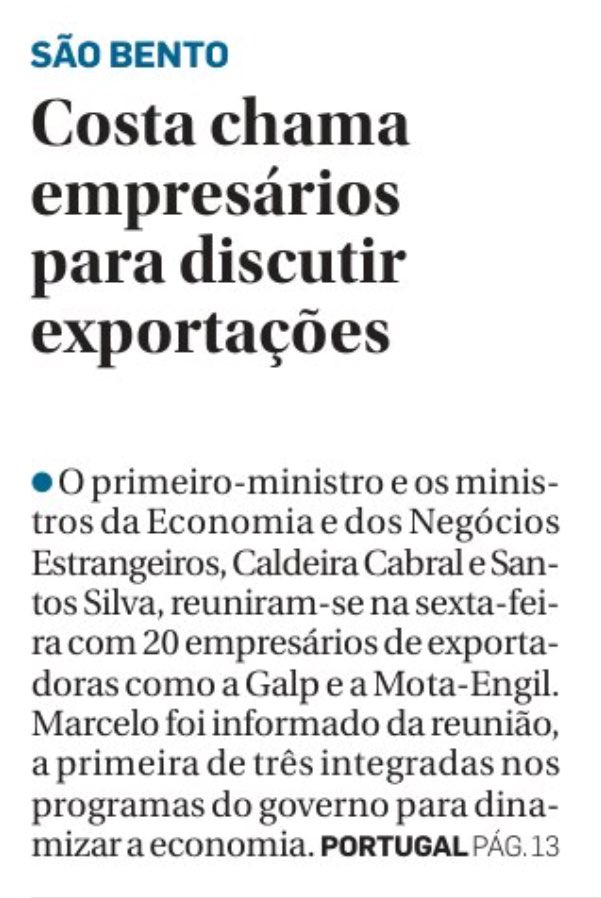.
Recordar a nossa opinião, expressa na parte I:
"A verdade é que Portugal mesmo agora não está a perder quota de mercado, está a ganhá-la em países muito exigentes em qualidade-preço-performance. Mesmo em Angola não é linear que esteja a perder quota de mercado."Em sintonia perfeita com:
"Na verdade, neste mês de abril de 2016, as vendas para os países da UE cresceram 8,4% face ao mês homólogo do ano anterior.Trechos retirados de "Exportações do setor metalúrgico e metalomecânico para os países da União Europeia mantêm trajetória ascendente"
...
Nesse âmbito, no que concerne especificamente às vendas para países da UE, face ao período homólogo do ano anterior, houve um crescimento de 5,1%, tendo passado de 3.667.353.322€ para 3.854.169.450€. Relativamente às exportações para fora da UE, tal como acima se avançou, houve uma queda de 29,4%, com um decréscimo de 1.352.177.524€ para 954.000.220€. Em termos globais, a queda foi de 4,2%, tendo decrescido de 5.019.530.856€ para 4.808.169.670€."











%2006.21.jpeg)












